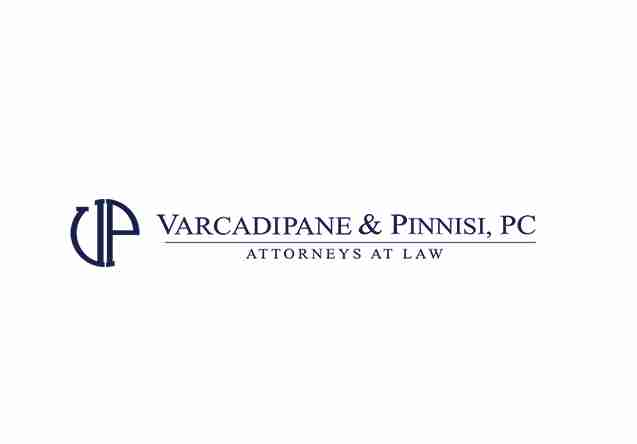
Have you or your loved one suffered a serious personal injury in New Jersey from an accident? At Varcadipane & Pinnisi, PC, we have the experience, skill, and dedication it takes to help you recover the maximum compensation permitted under the law for your injuries.
We regularly litigate personal injury cases in Florida, New York, and New Jersey in the Federal and State Courts and we have obtained millions of dollars in recoveries for our clients.
Give us a call or send us an email to arrange an immediate free consultation with a Personal injury Lawyer in Paramus, NJ. In almost every case, we will handle your personal injury claim at no upfront cost and we only recover a fee as a percentage of what we recover for you. Call us now to learn more.
Types of Injury & Accident Claims We Handle
What to Do After You Suffered an Injury In An Accident?
How Much Time Do I Have To File a Claim In New Jersey?
Contact a New Jersey Personal Injury Injury Attorney Today
Types of Injury & Accident Claims New Jersey Personal Injury Lawyer Handle:
Car Accidents: Auto accident injury claims are inherently complex. Unfortunately, far too many innocent accident victims make mistakes in the moments, days, and weeks that follow their wreck. As such, it becomes harder for them to obtain a full and fair recovery for their personal injury and damages.
General Negligence: Typically, “negligence” claims involve a person or company that has caused harm or damages to others because they failed to act reasonably. Generally, a party is liable if they act without reasonable care or fail to act when a reasonable person would have, and someone suffers a personal injury as a result like DOG BITES.
Product Liability: If you have been injured by a dangerous or defective product or device, you may have a viable product liability claim against the company that designed, manufactured, distributed, and/or sold the device. Product liability law typically allows an injured party to recover money damages if the injury was caused by defective design, manufacturing, or marketing of that product or if the personal injury was caused because the product did not provide adequate warnings of known hazards.
Professional Malpractice: Professional malpractice is the action or inaction by a professional that violates the generally accepted standard applicable to that professional’s practice. Types of professional malpractice include Medical Malpractice; Chiropractic Malpractice; Architectural Malpractice; and, Engineering Malpractice.
Construction Accident: Construction zones have a reputation for being hazardous for a good reason: they are. In this way, Construction workers are at risk of being struck by objects or construction equipment, unguarded machinery, slip and falls, and falling from significant heights, along with a myriad of other hazards.
GENERAL NEGLIGENCE:
Typically, “negligence” claims involve a person or company that has caused harm or damages to others because they failed to act reasonably. Generally, a party is liable if they act without reasonable care or fail to act when a reasonable person would have, and someone suffers an injury as a result.
In general, a negligence claim requires proving negligence involves establishing four “elements” or issues in your case. These elements are:
DUTY OF CARE – Not only must the plaintiff establish what the duty or standard of care was in the particular case but must also establish that the particular defendant owed that duty to this particular plaintiff.
BREACH OF THAT DUTY – Once the plaintiff establishes the duty of care, the plaintiff must prove that the defendant’s conduct constituted a breach of that duty.
CAUSATION – The plaintiff must prove that the defendant’s breach of the duty of care was the actual and proximate cause of the plaintiff’s injuries and/or damages. Actual cause or cause in fact is the objective factual standard – did A cause B. Proximate cause is legal causation which subjectively recognizes that the conduct at issue was the primary cause of the personal injury without any intervening cause and without which the injury would not have occurred.
ACTUAL DAMAGES – The plaintiff must establish that the injury caused actual damages in order to sustain a negligence personal injury claim. This requirement means that to sustain the case, the plaintiff must prove that he or she suffered some damage or loss that can be equated to a specific monetary value of the loss suffered. Our New Jersey personal injury law firm works hard to prove negligence in your claim.
PRODUCT LIABILITY:
If you have been injured in New Jersey by a dangerous or defective product or device, you may have a viable product liability claim against the company that designed, manufactured, distributed, and/or sold the device. Product liability law in New Jersey typically allows an injured party to recover money damages if the personal injury was caused by defective design, manufacturing, or marketing of that product or if the injury was caused because the product did not provide adequate warnings of known hazards. Our New Jersey personal injury lawyers are here to represent your case.
A product liability claim is based on the legal theory of “strict liability”. This theory means that the plaintiff only has to prove that the plaintiff suffered damages caused by the product. In other words, the plaintiff does not have to prove negligence. Instead, the plaintiff must provide an actual loss caused by a defective product used as a reasonable individual would have used it.
If you believe you have sustained a personal injury in New Jersey as the result of a defective product or because the product lacked adequate warnings, the law may entitle you to compensation.

PROFESSIONAL MALPRACTICE:
Professional malpractice is the action or inaction by a professional that violates the generally accepted standard applicable to thatprofessional’s practice. Types of professional malpractice include Medical Malpractice; Chiropractic Malpractice; Architectural Malpractice; and, Engineering Malpractice.
If you believe you have sustained a personal injury as a result of a professional’s malpractice, the law may entitle you to compensation.
To establish a claim for professional malpractice, you must prove that the professional in question:
OWED THE PLAINTIFF A DUTY OF CARE – In professional negligence claims, the standard of care that is applicable refers to a similar professional of similar training in that location. Thus, a personal injury lawyer in New Jersey is held to the standard of care of a certified civil trial attorney in that location; a medical professional is held to the standard of that particular kind of medical professionals, such as that of a certifying board, in that location.
BREACH THAT DUTY OF CARE – Generally, two tests are used to determine whether the duty of care was breached. The “foreseeability test” looks to determine whether the professionals should have known that their actions would result in damages to the plaintiff. The “multifactor tests” evaluate several factors to determine whether the defendant deviated from the applicable professional standard of care. These factors can include the nature and severity of the personal injuries, other options the defendant could have employed and their costs, and whether safer or less harmful options were available to the defendant.
BREACH CAUSED THE PLAINTIFF’S INJURY – The plaintiff must be able to prove that “but for” the failure to meet the applicable standard of professional care, the damages would not have occurred.
Plaintiff Suffered Damages from the Injury – The plaintiff must be able to establish actual damages to recover on a professional malpractice claim. As the New Jersey Appellate Court stated in 2019, the plaintiff cannot satisfy this requirement by “mere conjecture, surmise, or suspicion.” Specifics are required.
Around these, you may find yourself as a victim of:
New Jersey Statute of Limitations for Injury Cases
Suppose you’ve been injured in a slip-and-fall accident, a car wreck, or another incident where another person’s negligence caused you injury. In that case, you could be considering filing a personal injury claim in New Jersey’s civil court system. If so, it’s important to understand the statute of limitations for New Jersey personal injury cases. A statute of limitations is a law that places a strictly-enforced time limitation on your right to file a personal injury lawsuit in a New Jersey court.
Two years is the time limit for filing New Jersey personal injury claims. Whether you were injured due to negligence or whether your injury was caused by an intentional tort, two years is the deadline for filing most types of personal injury lawsuits in New Jersey. When another individual’s careless or intentional behavior causes damage to you, and you want to file a claim for damages in a New Jersey court, you only have two years to file a complaint and any necessary documentation. The clock starts ticking after the date of your accident.
“There is nothing our firm takes more seriously than fiercely advocating for our clients in a manner that makes them feel confident and informed at all times. We are not striving to be the biggest law firm for our practice areas but we do aim to be the best.”

JEFFREY W. VARCADIPANE
Address:
80 W Century Rd
Paramus, NJ 07652 United States
Phone: 201-588-1500
Website: https://www.vpattorneys.com/new-jersey-personal-injury-lawyer